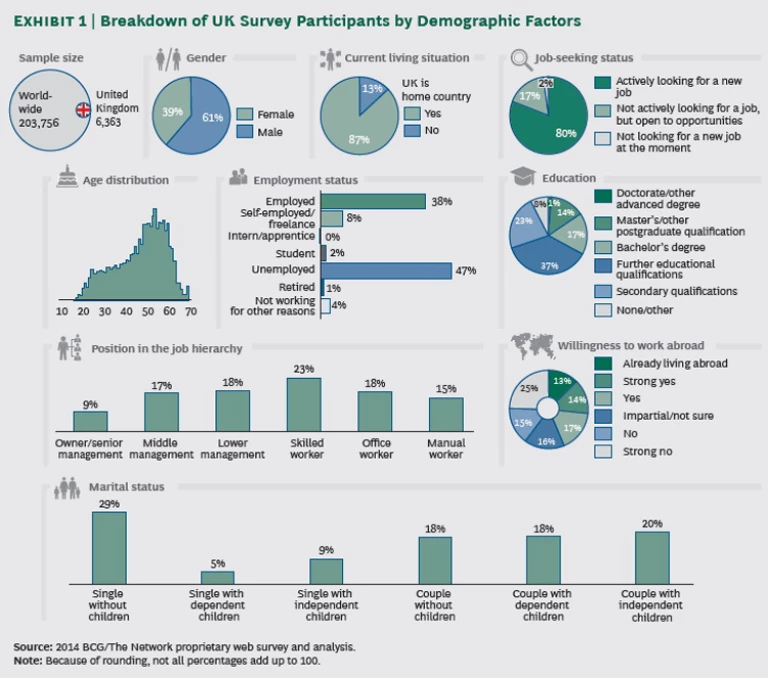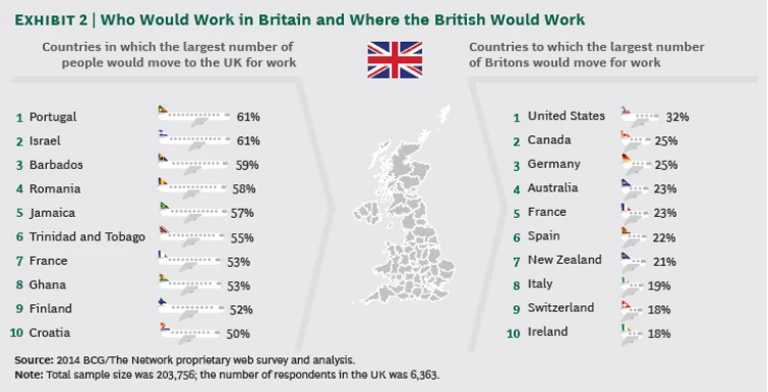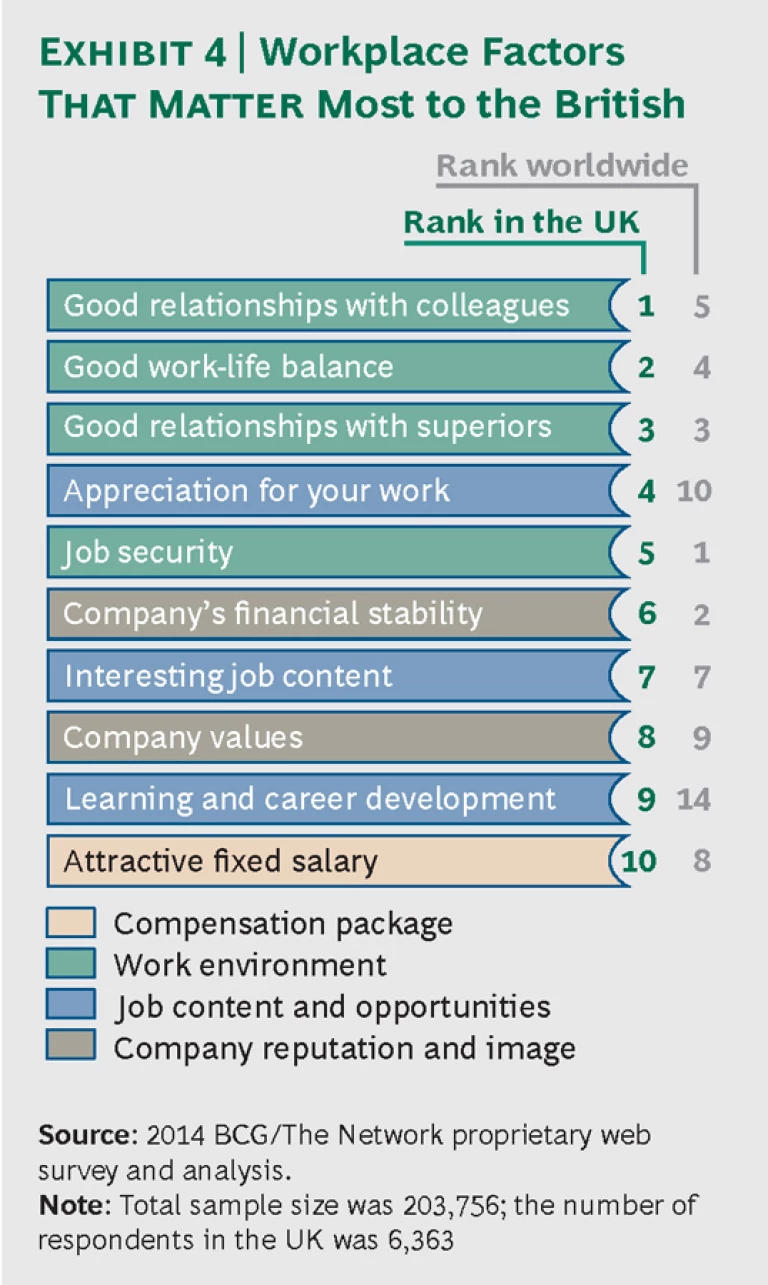People take pride in being from the UK. Even when they move away for work, a part of them longs to come back.
Global Talent
Most prefer not to leave in the first place. Fewer than 44 percent of Britons say they would be willing to move abroad for work, one of the lowest proportions of any country in the world, according to a survey by BCG and Totaljobs, an employment website that is part of The Network. Only Americans (with 35 percent willing to work abroad) are less enthusiastic about the prospect of taking a job abroad. The survey drew on responses from job seekers in 189 countries. (See Exhibit 1.)
To some extent, Britons may be encouraged to stay by clear signs that one of the longest recessions in memory is finally over. Unemployment in the UK as of mid-2014 fell to 6.4 percent, the lowest level since late 2008, according to the country’s Office for National Statistics. The recovery is also getting the attention of foreigners, increasing the consideration they give to the UK as a possible work destination.
Among British willing to work abroad, the preference is for English-speaking countries with which they have strong cultural ties, such as the U.S., and Commonwealth countries like Canada and Australia. British workers also have an interest in EU countries with which their nation has flexible work agreements, including Germany, France, and Spain. (See Exhibit 2.)
To a greater or lesser degree, these countries all provide Britons with the opportunity to broaden their personal experience, which is the number one motivation for British workers interested in moving abroad. (Exhibit 3.)
The most important workplace attribute for people in the UK is good relationships with colleagues. In this, the British are very like workers elsewhere in the EU. For instance, workers in Austria, Denmark, Germany, and Switzerland also put good relationships with colleagues first. The only non-EU G20 country where good relationships with colleagues ranks first is Nigeria, according to the survey.
Perhaps because of the rough stretch the UK has gone through since 2008, the British do tend to worry about job security, ranking it the fifth most important workplace attribute. (See Exhibit 4.) That reflects more concern over the possibility of job loss than in any other European country except Spain, which has an unemployment rate far higher than Britain’s.
In terms of its appeal to inbound workers, the UK ranks second in the world, with 37 percent of job seekers globally saying they would consider moving there. That is behind only the U.S., considered as a possible work destination by 42 percent of global job seekers. The UK is especially appealing to people from other EU countries, such as Portugal, Romania, France, and Croatia, and also to people in Commonwealth countries, including Barbados, Jamaica, and Trinidad and Tobago. People in Commonwealth countries enjoy a simplified work-permit process and a shared language with the UK.
There are a few overarching reasons for the UK’s popularity as a work destination. One is its heritage of accepting people from a variety of cultures and backgrounds. A second is its political stability. And a third is the legacy of the 2012 Olympics, a hugely successful mega-event that burnished London’s already great reputation as a center for business, culture, and global leadership.
Indeed, London beat every other city in the survey as a work destination, with almost one in every six foreign job seekers saying they would consider relocating there. That is considerably more than the proportion who mentioned New York or Paris, and more than the number of mentions for Sydney, Madrid, and Berlin combined.
London’s reputation is one of the things the British are proudest of, and even when people born in Britain find themselves living and working abroad, they often continue to identify with London. Philip Webb, who left his native England when he was a child and is now an IT manager in Toronto, is an example. “I’ve got a family here in Canada, I’ve made a life and career here, and I intend to stay here,” says Webb, 43. “Still, it’s hard for me not to call England, to call London, home. If somebody says, ‘What’s your hometown?’ I always say London.”











